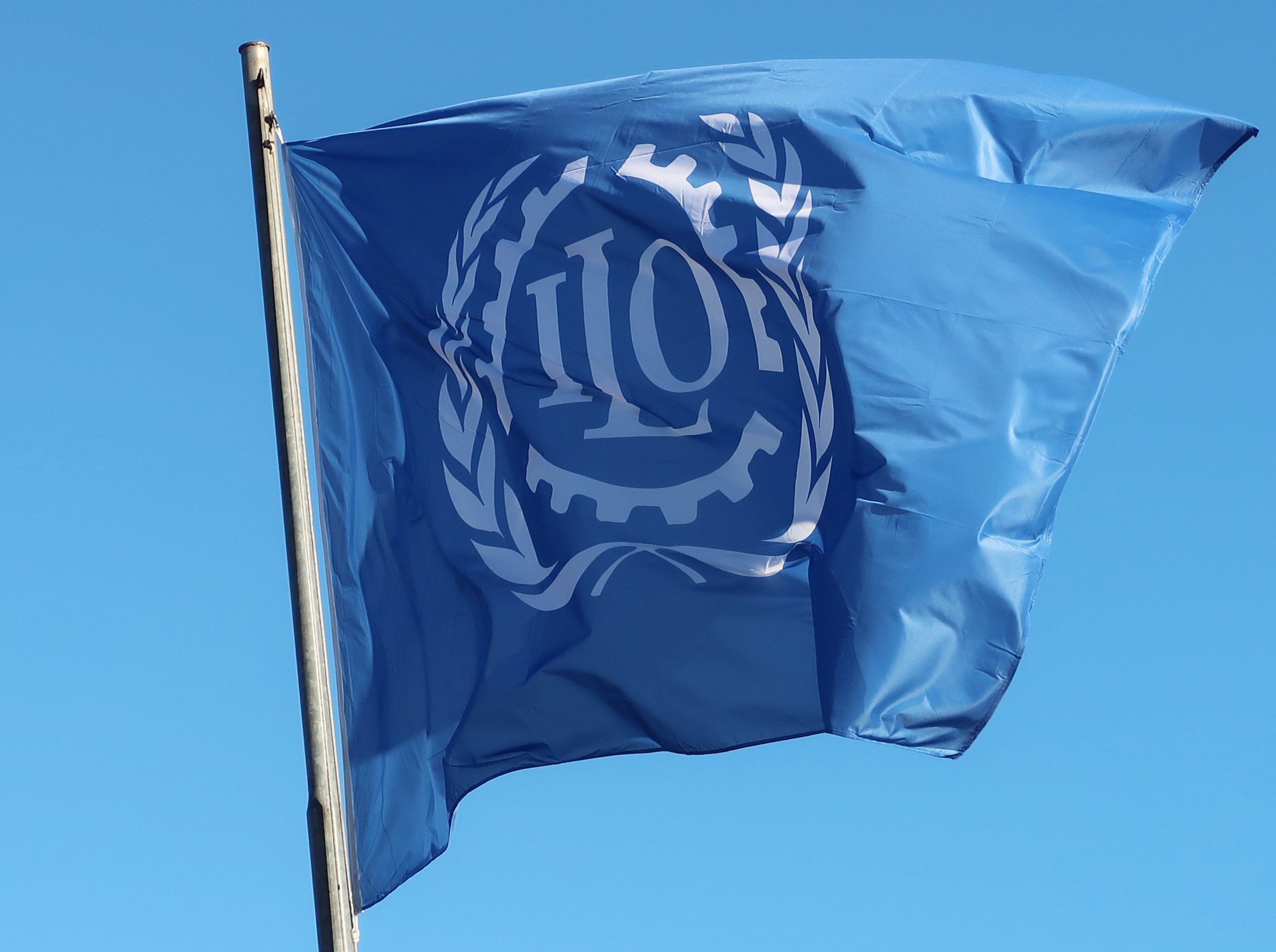|
SA8000
Social Accountability 8000 (SA 8000) is an international standard for social accountability management systems. It was developed in 1997 by Social Accountability International, formerly the Council on Economic Priorities Accreditation Agency, by an advisory board consisting of trade unions, NGOs, civil society organizations and companies. The SA 8000's criteria were developed from various industry and corporate codes to create a common standard for social welfare compliance. The current (2014) version of the standard is built on earlier 2001, 2004 and 2008 versions. The goal of the standard is to encourages organizations to develop, maintain, and apply socially acceptable practices in the workplace. The standard was designed to fit into an integrated management system. Performance criteria It also requires compliance with eight performance criteria, as outlined on the Social Accountability International website. * Child Labor: No use or support of child labor; policies and writte ... [...More Info...] [...Related Items...] OR: [Wikipedia] [Google] [Baidu] |
Management System
A management system is a set of policy, policies, business process, processes and procedures used by an organization to ensure that it can fulfill the tasks required to achieve its objectives. These objectives cover many aspects of the organization's operations (including product quality, worker management, safe operation, client relationships, regulatory conformance and financial success). For instance, a quality management system enables organizations to improve their quality performance, an environmental management system enables organizations to improve their environmental performance, and an safety management system, occupational health and safety management system enables organizations to improve their occupational health and safety performance, can be run in an integrated management system. The international standard ISO 9000:2015 (Title: Quality management systems - fundamentals and vocabulary) defines the term in chapter 3.5.3 as a "set of interrelated or interacting elem ... [...More Info...] [...Related Items...] OR: [Wikipedia] [Google] [Baidu] |
International Standard
An international standard is a technical standard developed by one or more international standards organizations. International standards are available for consideration and use worldwide. The most prominent such organization is the International Organization for Standardization (ISO). Other prominent international standards organizations including the International Telecommunication Union (ITU) and the International Electrotechnical Commission (IEC). Together, these three organizations have formed the World Standards Cooperation alliance. Purpose International standards can be applied directly or adapted to meet local conditions. When adopted, they lead to the creation of national standards that are either equivalent to or largely align with the international standards in technical content, though they may have: (i) editorial variations, such as differences in appearance, the use of symbols, measurement units, or the choice of a point over a comma as the decimal marker, and (ii) va ... [...More Info...] [...Related Items...] OR: [Wikipedia] [Google] [Baidu] |
Legal Minimum Wage
Law is a set of rules that are created and are law enforcement, enforceable by social or governmental institutions to regulate behavior, with its precise definition a matter of longstanding debate. It has been variously described as a Social science#Law, science and as the art of justice. State-enforced laws can be made by a legislature, resulting in statutes; by the executive through decrees and regulations; or by judges' decisions, which form precedent in common law jurisdictions. An autocrat may exercise those functions within their realm. The creation of laws themselves may be influenced by a constitution, written or tacit, and the rights encoded therein. The law shapes politics, economics, history and society in various ways and also serves as a mediator of relations between people. Legal systems vary between Jurisdiction (area), jurisdictions, with their differences analysed in comparative law. In Civil law (legal system), civil law jurisdictions, a legislature or othe ... [...More Info...] [...Related Items...] OR: [Wikipedia] [Google] [Baidu] |
International Standards
An international standard is a technical standard developed by one or more international standards organizations. International standards are available for consideration and use worldwide. The most prominent such organization is the International Organization for Standardization (ISO). Other prominent international standards organizations including the International Telecommunication Union (ITU) and the International Electrotechnical Commission (IEC). Together, these three organizations have formed the World Standards Cooperation alliance. Purpose International standards can be applied directly or adapted to meet local conditions. When adopted, they lead to the creation of national standards that are either equivalent to or largely align with the international standards in technical content, though they may have: (i) editorial variations, such as differences in appearance, the use of symbols, measurement units, or the choice of a point over a comma as the decimal marker, and (ii) v ... [...More Info...] [...Related Items...] OR: [Wikipedia] [Google] [Baidu] |
Social Accountability
Social accounting (also known as social and environmental accounting, corporate social reporting, corporate social responsibility reporting, non-financial reporting or non-financial accounting) is the process of communicating the social and environmental effects of organizations' economic actions to particular interest groups within society and to society at large. Social Accounting is different from public interest accounting as well as from critical accounting. Social accounting is commonly used in the context of business, or corporate social responsibility (CSR), although any organisation, including NGOs, charities, and government agencies may engage in social accounting. Social Accounting can also be used in conjunction with community-based monitoring (CBM). Social accounting emphasises the notion of corporate accountability. D. Crowther defines social accounting in this sense as "an approach to reporting a firm's activities which stresses the need for the identification of ... [...More Info...] [...Related Items...] OR: [Wikipedia] [Google] [Baidu] |
Universal Declaration Of Human Rights
The Universal Declaration of Human Rights (UDHR) is an international document adopted by the United Nations General Assembly that enshrines the Human rights, rights and freedoms of all human beings. Drafted by a UN Drafting of the Universal Declaration of Human Rights, committee chaired by Eleanor Roosevelt, it was accepted by the General Assembly as United Nations General Assembly Resolution 217, Resolution 217 during Third session of the United Nations General Assembly, its third session on 10 December 1948 at the Palais de Chaillot in Paris, France. Of the 58 members of the United Nations at the time, 48 voted in favour, none against, eight abstentions, abstained, and two did not vote. A foundational text in the History of human rights, history of human and civil rights, the Declaration consists of 30 articles detailing an individual's "basic rights and fundamental freedoms" and affirming their universal character as inherent, inalienable, and applicable to all human beings ... [...More Info...] [...Related Items...] OR: [Wikipedia] [Google] [Baidu] |
United Nations Convention On The Rights Of The Child
The United Nations Convention on the Rights of the Child (commonly abbreviated as the CRC or UNCRC) is an international international human rights treaty which sets out the civil, political, economic, social, health and cultural rights of children. The convention defines a child as any human being under the age of eighteen, unless the age of majority is attained earlier under national legislation. Nations that have ratified this convention or have acceded to it are bound by international law. When a state has signed the treaty but not ratified it, it is not yet bound by the treaty's provisions but is already obliged to not act contrary to its purpose. The UN Committee on the Rights of the Child, composed of eighteen independent experts, is responsible for supervising the implementation of the convention by the states that have ratified it. Their governments are required to report to and appear before the UN Committee on the Rights of the Child periodically to be examined on ... [...More Info...] [...Related Items...] OR: [Wikipedia] [Google] [Baidu] |
International Labour Organization
The International Labour Organization (ILO) is a United Nations agency whose mandate is to advance social and economic justice by setting international labour standards. Founded in October 1919 under the League of Nations, it is one of the first and oldest List of specialized agencies of the United Nations, specialized agencies of the UN. The ILO has Member states of the International Labour Organization, 187 member states: 186 out of 193 Member states of the United Nations, UN member states plus the Cook Islands. It is headquartered in Geneva, Switzerland, with around 40 field offices around the world, and employs some 3,381 staff across 107 nations, of whom 1,698 work in technical cooperation programmes and projects. The ILO's standards are aimed at ensuring accessible, productive, and sustainable Work (human activity), work worldwide in conditions of freedom, equity, security and dignity. They are set forth in List of International Labour Organization Conventions, 189 convent ... [...More Info...] [...Related Items...] OR: [Wikipedia] [Google] [Baidu] |
Human Rights
Human rights are universally recognized Morality, moral principles or Social norm, norms that establish standards of human behavior and are often protected by both Municipal law, national and international laws. These rights are considered inherent and inalienable, meaning they belong to every individual simply by virtue of being human, regardless of characteristics like nationality, ethnicity, religion, or socio-economic status. They encompass a broad range of civil, political, economic, social, and cultural rights, such as the right to life, freedom of expression, protection against enslavement, and right to education. The modern concept of human rights gained significant prominence after World War II, particularly in response to the atrocities of the Holocaust, leading to the adoption of the Universal Declaration of Human Rights (UDHR) by the United Nations General Assembly in 1948. This document outlined a comprehensive framework of rights that countries are encouraged t ... [...More Info...] [...Related Items...] OR: [Wikipedia] [Google] [Baidu] |
Workweek
The weekdays and weekend are the complementary parts of the week, devoted to labour and rest, respectively. The legal weekdays (British English), or workweek (American English), is the part of the seven-day week devoted to working. In most of the world, the workweek is from Monday to Friday and the weekend is Saturday and Sunday. A weekday or workday is any day of the working week. Other institutions often follow this pattern, such as places of education. The constituted weekend has varying definitions, based on determined calendar days, designated period of time, and/or regional definition of the working week (e.g., commencing after 5:00 p.m. on Friday and lasting until 6:00 p.m. on Sunday). Sometimes the term "weekend" is expanded to include the time after work hours on the last workday of the week. Weekdays and workdays can be further detailed in terms of working time, the period of time that an individual spends at paid occupational labor. In many Christian t ... [...More Info...] [...Related Items...] OR: [Wikipedia] [Google] [Baidu] |
Overtime
Overtime is the amount of time someone works beyond normal working hours. The term is also used for the pay received for this time. Normal hours may be determined in several ways: *by custom (what is considered healthy or reasonable by society), *by practices of a given trade or profession, *by legislation, *by agreement between employers and workers or their representatives. Most national countries have overtime labour laws designed to dissuade or prevent employers from forcing their employees to work excessively long hours (such as the situation in the textile mills in the 1920s). These laws may take into account other considerations than humanitarian concerns, such as preserving the health of workers so that they may continue to be productive, or increasing the overall level of employment in the economy. One common approach to regulating overtime is to require employers to pay workers at a higher hourly rate for overtime work. Companies may choose to pay workers higher overt ... [...More Info...] [...Related Items...] OR: [Wikipedia] [Google] [Baidu] |
Social Accountability
Social accounting (also known as social and environmental accounting, corporate social reporting, corporate social responsibility reporting, non-financial reporting or non-financial accounting) is the process of communicating the social and environmental effects of organizations' economic actions to particular interest groups within society and to society at large. Social Accounting is different from public interest accounting as well as from critical accounting. Social accounting is commonly used in the context of business, or corporate social responsibility (CSR), although any organisation, including NGOs, charities, and government agencies may engage in social accounting. Social Accounting can also be used in conjunction with community-based monitoring (CBM). Social accounting emphasises the notion of corporate accountability. D. Crowther defines social accounting in this sense as "an approach to reporting a firm's activities which stresses the need for the identification of ... [...More Info...] [...Related Items...] OR: [Wikipedia] [Google] [Baidu] |





